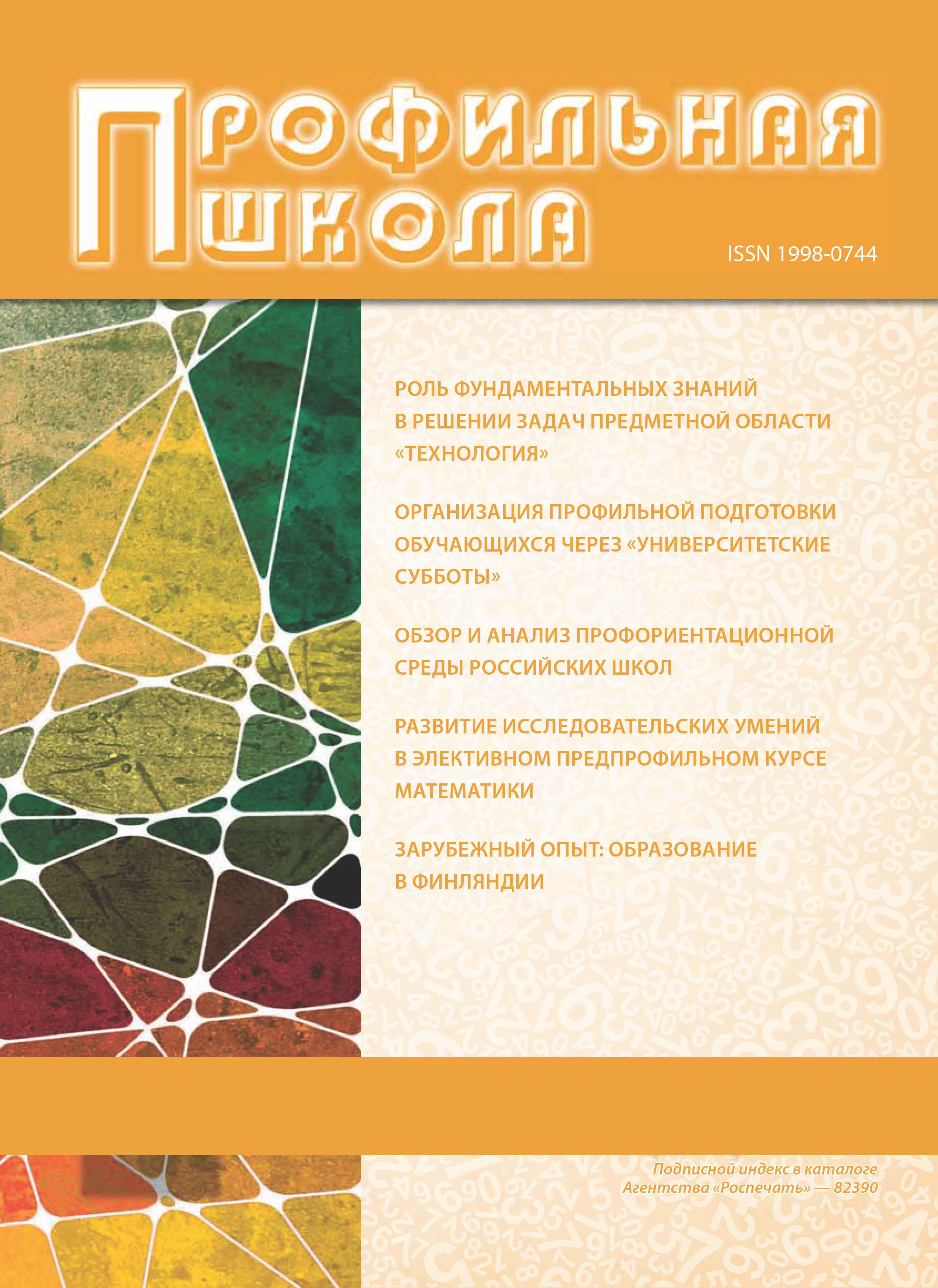The article deals with the issue of natural science literacy formation in teaching mathematics in middle school with the use of intersubject connections. Research methodology and techniques. The research is based on systemic-structural and activity approaches. Results. First of all, attention is paid to the consideration of the very concept of natural science literacy; the issue of assessing the level of development of students’ natural science literacy and means of its diagnostics in process of teaching mathematics, for example, at algebra lessons, is considered. Examples of specific tasks of interdisciplinary nature are given, which are used to determine the level of results achievement as a requirement of the Federal State Educational Standard of Basic General Education. Conditions for conducting integrated classes and their application as a means of developing natural science literacy of high school students at algebra lessons are considered. Issues of educational material synchronization of subject areas are considered as a key condition for implementation of intersubject connections between mathematics and physics. Practical significance of the work. The directions of changes in approaches to the implementation of intersubject connections of mathematics with other areas of knowledge as a basis for achieving metasubject educational results as a requirement of the Federal State Standard of Basic General Education are identified. Metasubject assignments that contribute to the achievement of metasubject and subject educational results at algebra and physics lessons have been identified. Particular attention is paid to giving integrated classes as a condition for development of natural science literacy of students, as well as a means of assessing the level of natural science literacy formation. In this regard, examples of tasks in physics are considered that require the use of mathematical literacy, which directly affects the ability to analyze the situation and draw conclusions within the framework of the natural-scientific picture of the world. The main recommendations for the implementation of interdisciplinary relationships to achieve metasubject educational results are formulated.
interdisciplinary communication, natural science literacy, mathematics, physics, high school
1. Simakova M.N. Metapredmetnyy podkhod k prepodavaniyu matematiki v osnovnoy i sredney shkole [Metasubject Approach to Teaching Mathematics in Primary and Secondary Schools]. Yuzhno-Sakhalinsk: SakhGU Publ., 2014. 116 p. EDN: https://elibrary.ru/VBZXCR
2. Kontseptsiya razvitiya rossiyskogo matematicheskogo obrazovaniya [Concept for the development of Russian mathematics education]. 2013. 51 p.
3. PISA 2018 Assessment and Analytical Framework. Paris: OECD Publishing, 2019. 308 p.
4. Formirovanie universal'nykh uchebnykh deystviy v osnovnoy shkole: ot deystviya k mysli. Sistema zadaniy [Formation of universal educational actions in basic school: from action to thought. System of tasks]. Moscow: Prosveshchenie Publ., 2011. 159 p.
5. Mushtavinskaya I.V. Sistema formirovaniya i otsenki metapredmetnykh rezul'tatov [The system for the formation and assessment of metasubject results]. Problemy sovremennogo pedagogicheskogo obrazovaniya [Problems of modern pedagogical education]. 2019, pp. 208-211.
6. Metapredmetnye i lichnostnye obrazovatel'nye rezul'taty shkol'nikov: novye praktiki formirovaniya i otsenivaniya [Metasubject and personal educational results of schoolchildren]. St. Petersburg: KARO Publ., 2015. 160 p.
7. Demoversii VPR [VLOOKUP demos]. Available at: https://4vpr.ru
8. Egupova M.V. Dostizhenie metapredmetnykh rezul'tatov v praktiko-orientirovannom obuchenii geometrii (7-9 klassy) [Achievement of metasubject results in practice-oriented teaching of geometry (grades 7-9)]. Kaluga: Eydos Publ., 2019. EDN: https://elibrary.ru/GXFXEE
9. Belolutskaya A.K. Preemstvennost' v formirovanii metapredmetnykh obrazovatel'nykh rezul'tatov [Continuity in the formation of metasubject educational results]. Moscow: Auther’s club Publ., 2018. EDN: https://elibrary.ru/YEAVWL
10. Selivanova O.G., Gasnikova N.V. Upravlenie protsessom dostizheniya shkol'nikami metapredmetnykh obrazovatel'nykh rezul'tatov v obrazovatel'noy deyatel'nosti [Management of the process of achieving metasubject educational results by schoolchildren in educational activities]. Vestnik Vyatskogo gosudarstvennogo universiteta [Bulletin of the Vyatka State University]. 2018, I. 4, pp. 119-129. DOI: https://doi.org/10.25730/VSU.7606.18.044; EDN: https://elibrary.ru/YODXBZ
11. Berezhnaya G.S. Realizatsiya metapredmetnogo podkhoda v osnovnoy shkole [Implementation of the metasubject approach in the basic school]. Vestnik Baltiyskogo federal'nogo universiteta im. I. Kanta. Ser.: Filologiya, pedagogika, psikhologiya [Bulletin of the Baltic Federal University. I. Kant. Ser .: Philology, pedagogy, psychology]. 2016, I. 4, pp. 62-67. EDN: https://elibrary.ru/UYZQRV
12. Osnovnye rezul'taty mezhdunarodnogo issledovaniya PISA-2015 [The main results of the international research PISA - 2015]. Tsentr otsenki kachestva obrazovaniya ISRO RAO [Center for assessing the quality of education ISRO RAO]. 2016. Available at: www.centeroko.ru (accessed 11 June 2019).
13. Pentin A.Yu., Kovaleva G.S., Davydova E.I., Smirnova E.S. Sostoyanie estestvennonauchnogo obrazovaniya v rossiyskoy shkole po rezul'tatam mezhdunarodnykh issledovaniĭ TIMSS i PISA [The state of natural science education in the Russian school based on the results of international studies TIMSS and PISA]. Voprosy obrazovaniya [Education Issues]. 2018, I. 1, pp. 79-109. DOI: https://doi.org/10.17323/1814-9545-2018-1-79-109; EDN: https://elibrary.ru/UOVFAD
14. Razumovskiy V.G., Pentin A.Yu., Nikiforov G.G., Popova G.M. Estestvennonauchnaya gramotnost' i eksperimental'nye umeniya vypusknikov osnovnoy shkoly: kontrol'nye materialy [Natural Science Literacy and Experimental Skills of Basic School Graduates: Test Papers]. Shkol'nye tekhnologii [School technologies]. 2016, I. 1, pp. 19-28. EDN: https://elibrary.ru/WIDHGD






